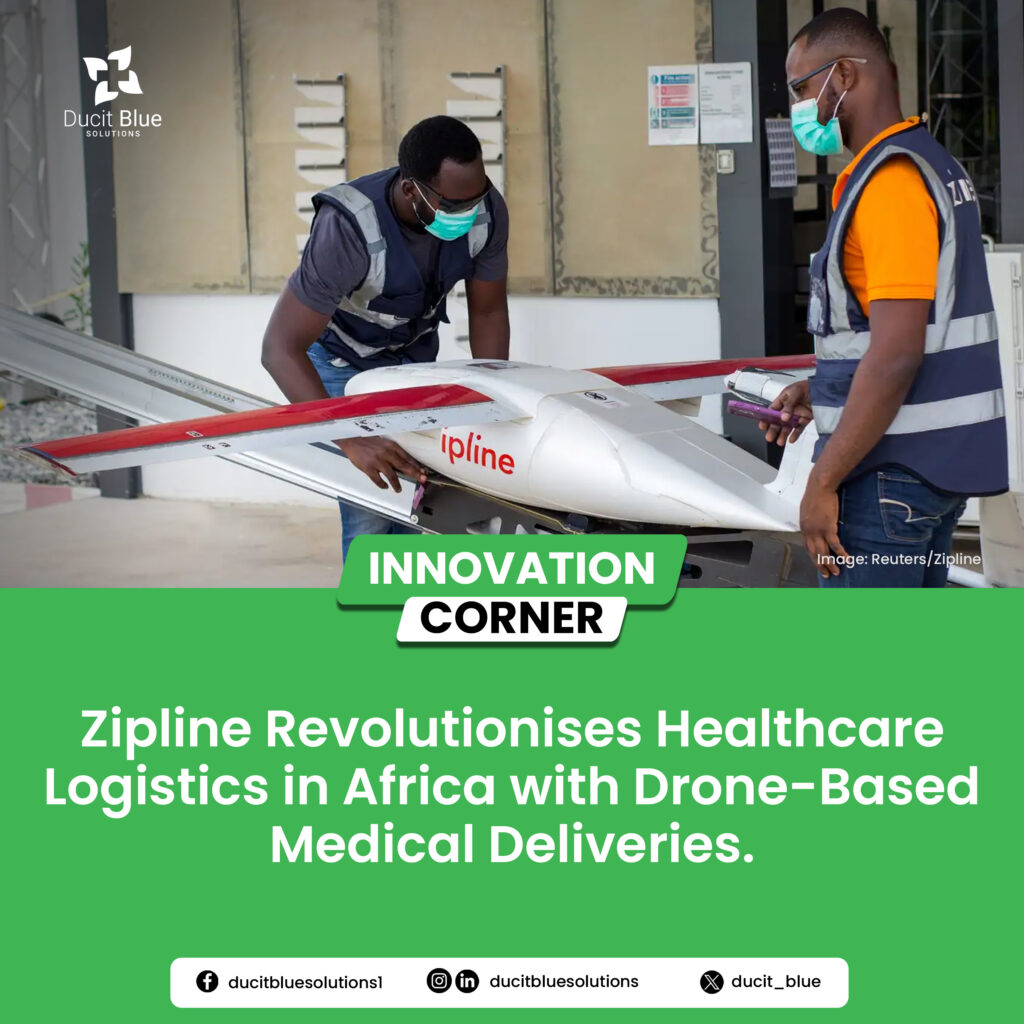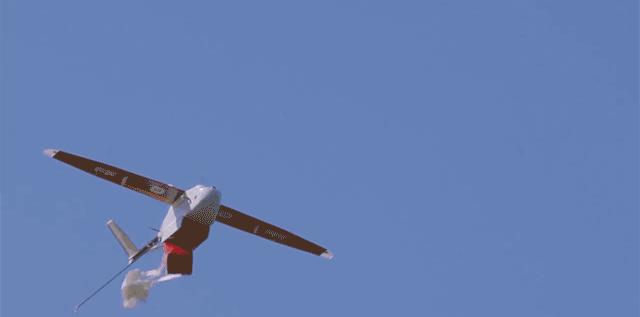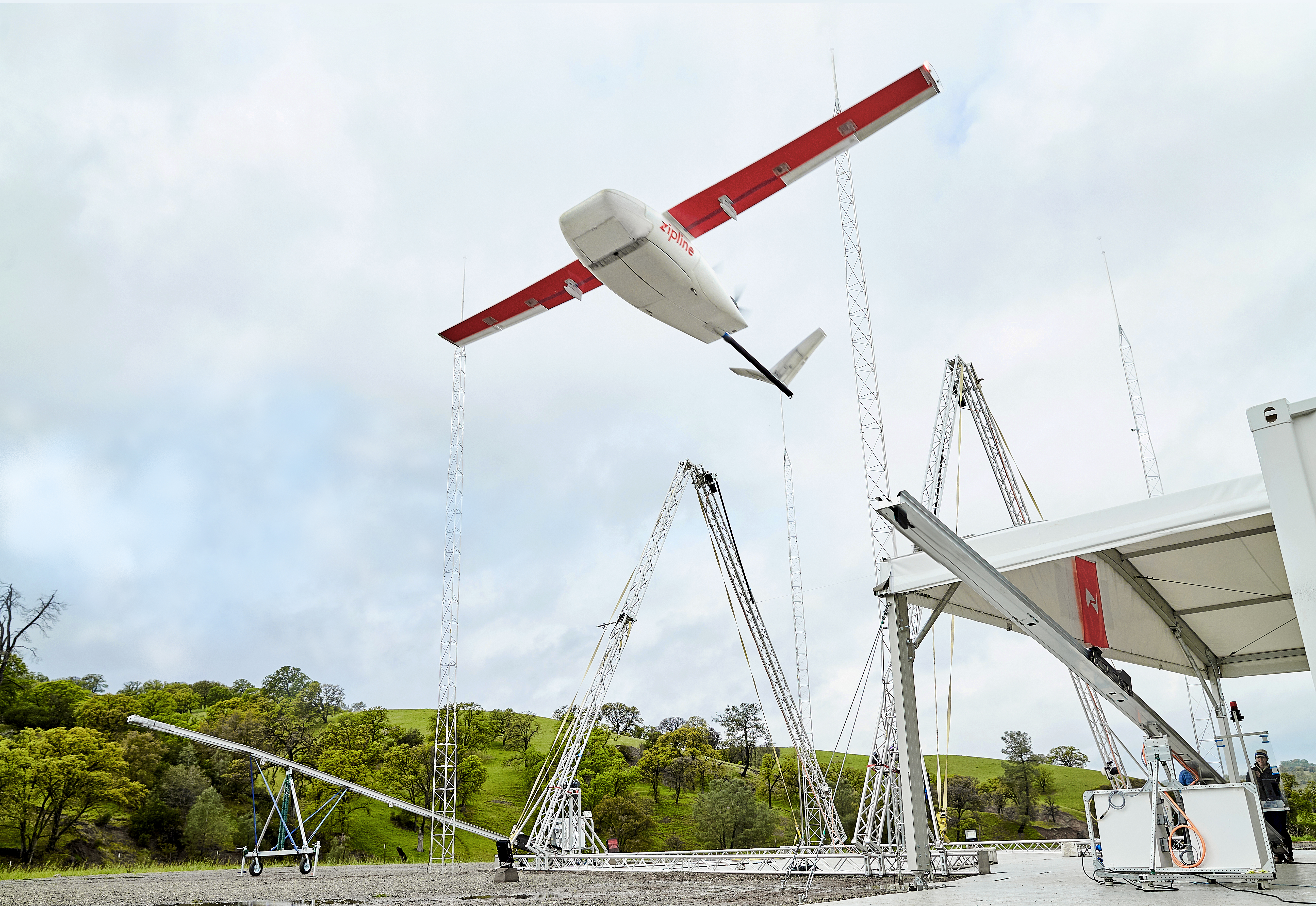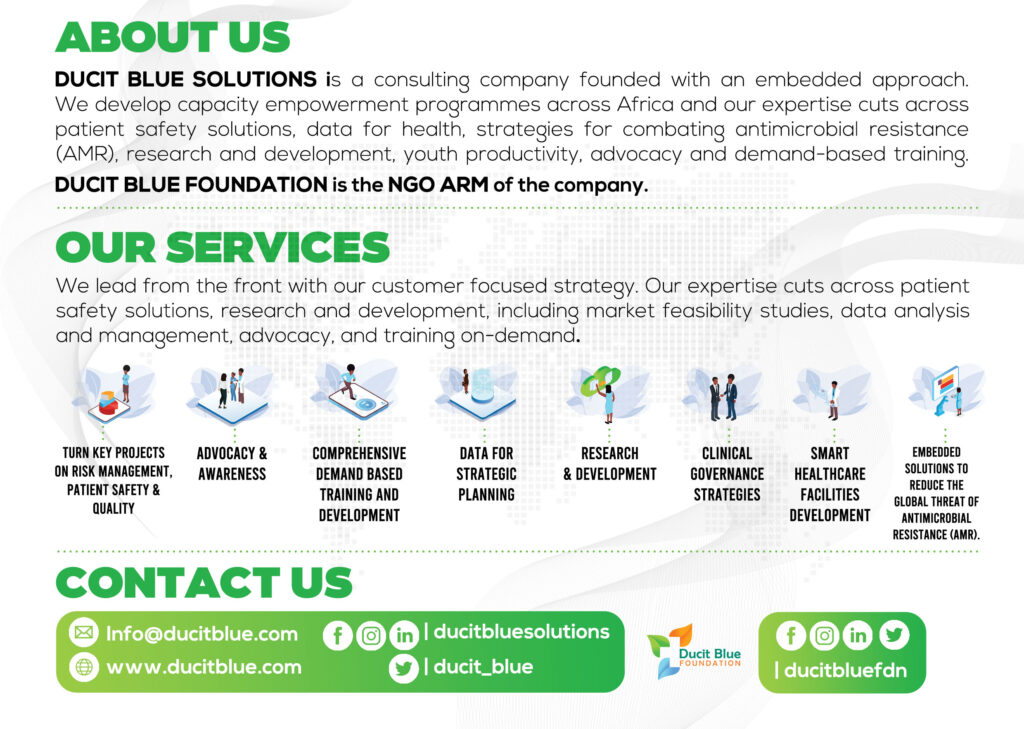
Drones are redefining how healthcare is delivered across Africa, and at the forefront of this revolution is Zipline
Zipline is an American-based company pioneering autonomous drone technology to address critical healthcare and logistical challenges worldwide. Established in 2014 and headquartered in South San Francisco, California, Zipline operates in multiple countries, including Rwanda, Ghana, Nigeria, Kenya, and Côte d’Ivoire, as well as in the United States and Japan.
By tackling logistical challenges head-on in Africa, Zipline is making a profound impact on access to healthcare in some of the continent’s most underserved regions.
Logistics related challenges faced by Healthcare systems across Africa includes:
- Poor infrastructure: Inadequate road networks and limited transportation options may hinder movement of medical supplies.
- Challenging terrains: Pose significant barriers to accessing rural and hard to reach areas.
- Supply chain disruptions: Delays in medical supplies delivery, often taking days to arrive, causing critical shortages in life-saving treatments.
- Limited Cold Chain Management: insufficient cold chain facilities and poor temperature control compromise integrity of temperature sensitive medical supplies
- High Mortality Rates: Delayed access to vaccines, medicines, and diagnostic kits exacerbates preventable illnesses and may lead to death.

(Pic credit: tekedia.com)
Zipline has developed an innovative, drone-powered delivery system that is addressing these barriers with remarkable efficiency, therefore, revolutionising healthcare through rapid medical deliveries.
Drones are equipped with cutting-edge navigation systems, enabling precision deliveries to healthcare facilities in remote locations. These drones are capable of covering vast distances and handling payloads of life-saving supplies, ensuring minimal disruption in the supply chain.
Zipline’s Implementation Across Africa
Zipline drones can transport supplies within 15 to 45 minutes, bypassing bad roads and harsh weather conditions. This speed ensures timely access to critical supplies, including vaccines, blood products, and essential medicines.

With their On-Demand Services, Healthcare facilities can order supplies on demand, reducing stockouts and wastage. This approach has proven critical in emergency scenarios and remote outreach programs.
In 2016, Zipline launched a distribution center near Muhanga, Rwanda. Recently, a new partnership was signed with the aim to complete nearly 2 million instant deliveries and fly more than 200 million autonomous kilometers in Rwanda by 2029. The initiative was later expanded to Ghana in 2019 and Côte d’Ivoire in 2021, delivering medical supplies, including vaccines, from local distribution centers directly to health facilities.
The latest localised impacts of Zipine’s activities in Africa healthcare covered both Kenya and Nigeria.
 Commissioning of Zipline facility in Ogoja, Cross River (2023) – Image: Zipline Nigeria
Commissioning of Zipline facility in Ogoja, Cross River (2023) – Image: Zipline Nigeria
In Kenya, Zipline has been instrumental in delivering HIV testing kits and medications to remote villages, supporting outreach events where testing rates have significantly increased.
Furthermore, by integrating Zipline drone logistics into its healthcare system, Nigeria is addressing critical supply gaps and improving access to vaccines, medicines, blood, and other medical equipment. In 2022, Zipline announced a partnership with the government of Nigeria and the regional government of Bayelsa State for the establishment of drone-based medical delivery services in the region. In 2023, upon deployment, the drones have made over 2,400 deliveries to 210 health facilities.
This initiative was later adopted by other Nigerian states, including Kaduna and Cross River. So far, in Cross Over they’ve been able to deliver over 1 million vaccine doses to communities and health facilities across 9 local Government Areas in Cross River State since deployment in 2023.
The model combines advanced technology with scalable solutions. Their system is adaptable to various terrains and healthcare needs, making it a viable long-term strategy for healthcare delivery across Africa.

These huge efforts highlight the power of innovation in tackling systemic challenges. By integrating drone technology into healthcare delivery, the company is not only saving lives but also setting a new standard for efficiency and accessibility. Their model is a testament to the transformative potential of technology in public health.
What’s Next?
For this innovation to scale its impact further in Africa, continuous support is essential. Key areas for growth include:
- Expanding partnerships with governments and NGOs.
- Strengthening regulatory frameworks to ease drone operations across borders.
- Investing in community awareness to foster trust and acceptance of drone technology.
- Integrating with Local Healthcare Systems within the country.
These huge efforts highlight the power of innovation in tackling systemic challenges. By integrating drone technology into healthcare delivery, the company is not only saving lives but also setting a new standard for efficiency and accessibility. Their model is a testament to the transformative potential of technology in public health.


